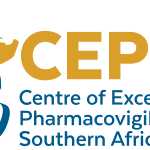South African higher education institutions as drivers of change for health and wellbeing
7 February 2024
Centre of Excellence for Pharmacovigilance in Southern Africa (CEPSA)
25 November 2024Team Members
*indicates student or postdoctoral fellow
- Dr Sunitha C Srinivas
- Ms Barbara Hutton
- Dr Lungiswa Tsolekile
- Dr Linda Shuro*
- Ms Ziyanda Mwanda
- Ms Carnita Ernest
- Ms Onyinye Akunne*
Project Period
- 1 February 2023 – 15 December 2023

Tackling Antimicrobial Resistance via Community-based Responsive Dialogues
This project, funded by ICARS (International Centre for Antimicrobial Resistance Solutions) through a grant from Wellcome from February to December 2023, developed guidelines to facilitate Responsive Dialogues to tackle antimicrobial resistance (AMR) in LMIC settings.
Project Summary
Tackling Antimicrobial Resistance via Community-based Responsive Dialogues is a new project funded by ICARS (International Centre for Antimicrobial Resistance Solutions) and Wellcome Trust that will run from 1 February 2023 – 30 September 2023. The project is led by Dr Hazel Bradley, Prof Renier Coetzee and colleagues from the School of Public Health, University of the Western Cape.
The project will develop guidelines and training modules to facilitate Responsive Dialogues to tackle antimicrobial resistance (AMR) in low- and middle-income country (LMIC) settings. The `Responsive Dialogues on Drug Resistant Infections´ approach was developed by Wellcome Trust to support public engagement and community leadership. The Responsive Dialogues Toolkit has been piloted by ICARS in Thailand and Malawi to generate solutions for addressing Antimicrobial Resistance (AMR) that are grounded in local realities and embrace ideas and views from the public. ICARS is currently piloting the Responsive Dialogues approach in Zambia.
This project will build on the lessons learnt from Responsive Dialogue pilots in Malawi, Thailand and Zambia to develop guidelines and complementary training modules for facilitating Responsive Dialogues on addressing AMR. The purpose of the guidelines is to make the process for facilitating ‘Conversation Events’ – which are at the core of the Responsive Dialogues approach – clearer, more accessible, more streamlined and relevant to a range of stakeholders in LMIC settings. The project will use participatory and multidisciplinary approaches, drawing on a diverse project team and key stakeholders from health, agriculture and environment sectors – embracing the One Health concept to address AMR priorities.


